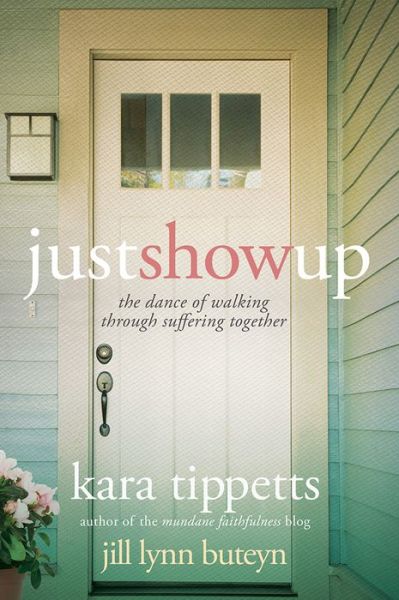Guest post by Meredith Lynn McCaskey
I am fond of Christmas music. The holiday season is incomplete without my favorite Christmas CDs drifting out of the speakers, the anthems at church, the Christmas music I play for myself on the piano. However, when I say Christmas music, I really mean Christmas hymns. I don’t have any objection to the old-time crooners—I like Bing Crosby warbling White Christmas as much as anybody—but I’m not nearly as enthusiastic about the kind of holiday music you hear playing in the department stores. There is nothing wrong with chestnuts roasting on open fires, or strolls through winter wonderlands while listening to sleigh-bells ring-a-linging, but I fear that if that’s where Christmas begins and ends, our hearts will be left hollow. The trouble with department store Christmas music is that it offers no hope to the broken-hearted or the heavy-laden at Christmastime.
This holiday season will be hard for me. I’ll Be Home For Christmas might serenade me, but three members of my little family will not be home. My husband, Nate, a fighter pilot in the Air Force, has been stationed since March on a yearlong remote tour in South Korea (“remote” is the polite word the Air Force substitutes for “we-don’t-want-your-family-here”.) No matter how much snow or mistletoe we conjure up, he won’t be home to spend Christmas with our 17-month-old son Sean and me. And even after he returns, we will spend the remainder of our earthly Christmases missing our twin daughters, Livia and Lucy, who were stillborn 2 ½ years ago. We know they are with Jesus, yet that doesn’t change the bittersweet flavor of our holiday celebrations. We will always be missing our two oldest children, Sean’s big sisters, and knowing that however large our family eventually grows, it will never be complete here on earth. Our Christmas this year and forevermore simply won’t fit the tinsel-framed picture-postcard of syrupy perfection painted by modern Christmas songs.
I’m willing to hazard a guess that your Christmas doesn’t fit that image either.
So let’s leave behind those chestnuts and sleigh bells and winter wonderlands, those promises that if you have yourself a merry little Christmas, your heart will be light and your troubles will be out of sight, and turn instead to a hymn that has greeted the Christmas season for centuries. Let’s see if it offers us something better.
“O come, O come, Immanuel
And ransom captive Israel
That mourns in lonely exile here
Until the Son of God appear
Rejoice! Rejoice! Immanuel
Shall come to thee, O Israel.”
Here is a song that would never qualify in modern holiday song tryouts. Not only is the tune in a minor key (such a lovely, haunting, wistful melody), it also has a number of concepts that just don’t fit the tinsel-and-sweetness of stock Christmas images. Captivity, mourning, loneliness, exile. And the second verse is worse:
“O come, Thou Rod of Jesse, free
Thine own from Satan’s tyranny
From depths of Hell Thy people save
And give them victory o’er the grave
Rejoice! Rejoice! Immanuel
Shall come to thee, O Israel.”
Tyranny, Satan, depths of Hell, and the grave. This is dark stuff. This is as far from a picture-postcard Christmas as you can get.
And that’s the whole point.
Department store Christmas songs would have us believe that Christmas is a magical time full of sweetness and light—and somehow it is that way just because it happens to be December, because of presents and food and stories of Santa Claus.
The old Christmas hymns give us a different image. The world wasn’t already calm, peaceful, and beautiful, and Jesus Christ, the Son of God, became man and was born just to star in a Hallmark Nativity scene. It was more like the commander of an army parachuting into the middle of a blasted, ravaged battlefield. The world was dark.
“O come, thou Day-Spring, come and cheer
Our spirits by Thine advent here
Disperse the gloomy clouds of night
And death’s dark shadows put to flight
Rejoice! Rejoice! Immanuel
Shall come to thee, O Israel.”
Isn’t this a more honest picture? Isn’t it kind of a relief to hear a song that tells it like it is? When every day brings another story of death, disease, war, injustice, or hatred, we don’t need yet another pop singer telling us that it’s the most wonderful time of the year. All the tinsel and holly and bedecked trees can’t disguise the fact that we are living in a world ravaged by death’s dark shadows. The gloom and the clouds penetrate our hearts and souls and minds. Many of us know what it is to be captive to disease and addiction, and all of us know what it is like to be captive to the sin and selfishness in our own hearts. I know what it means to mourn the death of the heart’s beloved, and so do billions of others. We endure loneliness and exile. We groan in a world that feels bound to the tyranny of evil. This lament of a hymn gives us words for heart-brokenness.
And yet—and yet—even in midst of the dark picture painted by this hymn, we are called upon to rejoice. Why? And how?
First, we must understand not only that this hymn is a lament, but we must recall that a lament is spoken to someone. In the Psalms, laments are anguished cries to God. Whoever the Latin-speaking hymnist was who first wrote down Veni, Veni Immanuel centuries ago, he or she was echoing that desperate cry of the Biblical psalmists: Oh, God, come. That is the central plea. It is reinforced by using one of the names of Christ– Immanuel. God with us. In a sense, the hymnist is saying, Oh God, come, so that You can be God-with-us.
Second, laments generally include a plea for God to act. Save me, O God, is a common refrain in the lament psalms. We see that here. We need God not just to come and be with us, we need Him to act on our behalf. Ransom us. Free us. Cheer us. Give us victory. Put Death to flight.
And this is the key to our rejoicing—He will do it! He comes to us and He acts for us— we can’t save ourselves, so He comes as a Savior! Apart from Jesus we are powerless against the evil out in the world and the evil in our own hearts, but He comes to give us victory over both. He comes to do all we cannot do for ourselves and for our world. That is why we rejoice. Our rejoicing comes on the far side of pain and brokenness, and yet it is a realer and wilder and more glorious joy than anything offered by the syrupy picture-postcards of department store Christmas songs.
“O come, Thou Key of David, come
And open wide our heavenly home;
Make safe the way that leads on high
And close the path to misery
Rejoice! Rejoice! Immanuel
Shall come to thee O Israel.”
Christmas is the celebration of Jesus’ first advent, the first time He became Immanuel. But ultimately Christmas points to the second advent– to the time when one day Jesus will be our eternal Immanuel, when He will come back in the flesh and never ever leave. On that day all the promises of this hymn, which were partially fulfilled in Jesus’ death and resurrection, will become perfectly fulfilled for all of us who hope in Him. Death will be put to flight—forever. Satan will be defeated—forever. The path of misery will be closed—forever. And on that day we will experience the fullness of joy in the presence of our Savior.
The hymns of Christmas give our hearts what we really need—both lament and hope. Whatever dark shadows hem you in, I invite you to use the words of this hymn as a lament, a cry, a prayer. Let them whisper to you of the true hope of Christmas. Simply cry out, Oh God, come. The words won’t give you a tinsel-framed picture postcard Christmas. The dark shadows may still surround you; your circumstances may remain unchanged. These hymns don’t bring my daughters back to life; I will feel the bitterness of their death till we are reunited one day in heaven. But Jesus is our Immanuel—and in all the darkness we can anchor our hearts and souls to that fact. If we ask Him, He will come. He will be with us in the midst of the dark shadows. He will hold us tenderly, even if when we can’t feel His presence. And we can trust, even while in the depths, that someday, somehow, He will help us rejoice.
Meredith McCaskey is a military wife, a mother of three, a daughter of the King of Kings. She started writing before she knew how to spell, and she’s never stopped. When she feels like blogging, she posts on Listening to Grace, and when she doesn’t feel like blogging, she writes letters, memories, journals, scribbles, and emails to her husband. In the moments when she’s not chasing her son around or reading him storybooks, she’s working on her second novel.




